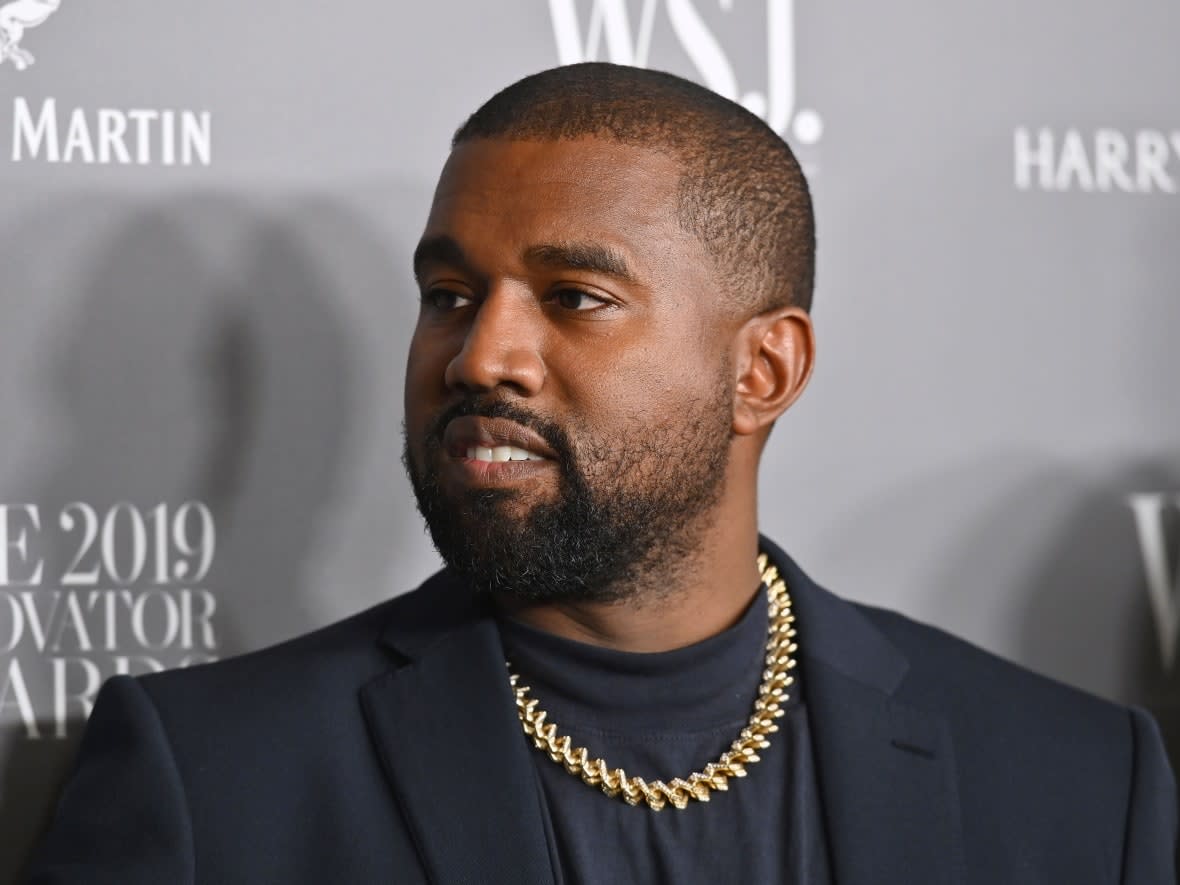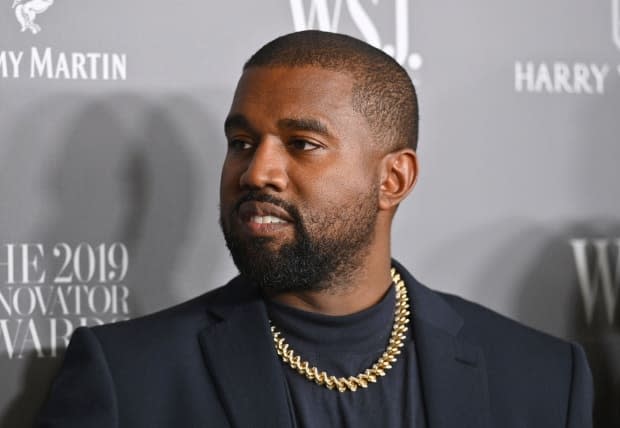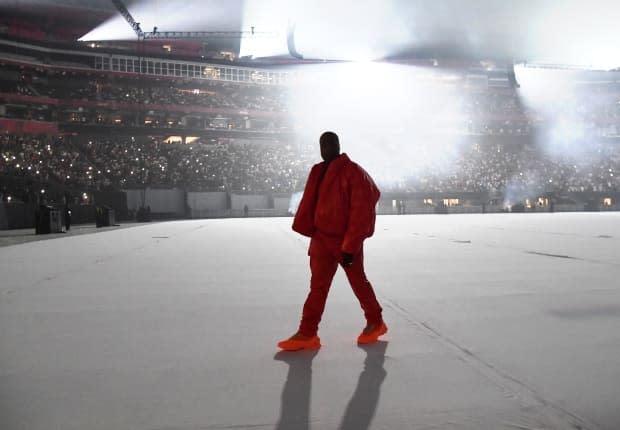Why are streaming platforms keeping Kanye when other companies cut ties?

Several weeks after a raft of antisemitic comments which finally pushed companies from Balenciaga, to Vogue, to Gap and TJ Maxx to sever ties, one area of Ye's empire still remains relatively untouched.
Formerly known as Kanye West, the rapper and producer Ye built his name as a cultural firebrand from a music career that spawned four multi-platinum albums and 11 Grammys before it began to be overshadowed by onstage rants, controversy, and eventually antisemitic and other offensive remarks.

But through it all, his music remained accessible on major streaming platforms, as brands and social media platforms were pressured to remove him.
While it might seem counterintuitive for him to remain unpunished on what is effectively his central business, it's unlikely we'll see the same kind of pushback and distancing on streaming sites as with other arenas.
"It doesn't surprise me because they are fundamentally different kinds of businesses," explained Serona Elton, a professor who studies the music industry at the University of Miami. "The nature of the business and contractual relationship with Ye is quite different in these different sectors."
WATCH | Adidas cuts ties with Kanye West over antisemtic comments:
While platforms like Instagram, Facebook and — most notably — Twitter have been embroiled in a debate over how, and whether, to exclude certain voices, music streaming has remained largely exempt.
And the few times streaming services have taken steps toward removing an artist from their platform, such as Spotify did following R&B singer R. Kelly's conviction for sex crimes against children, they were later walked back.
In regards to Ye, Spotify CEO Daniel Ek recently told Reuters they would take a similar stance. While calling his antisemitic messages "just awful comments," Ek said they would not take the rapper's songs off their platform, or wade into the field of content moderation beyond the lyrics of artists' songs.
"It's really just his music, and his music doesn't violate our policy," he said, adding that "it's up to his label if they want to take action or not."
That sentiment is why Ye is more likely to be forced out of public brand deals and social media platforms than spaces designed to share his productions, Elton said.
LISTEN | Kanye West's words and consequences:
"There are other examples of musical artists having done things that are considered morally reprehensible, and in at least a couple of cases, criminal," she said, emphasizing the damaging gravity of Ye's recent statements. "And the art still exists, and people can choose to consume it or not — depending on how much they feel the association between the artist and the art should influence them."
Controversial musicians
Bryan Sullivan, a founding partner of the Los Angeles-based law firm Early Sullivan who specializes in crisis and risk management in the entertainment industry, said when it comes to large artists, streaming services are usually constrained by the contracts they sign with recording or publishing companies.
Those contracts can run the gamut and can differ from song to song on the same album, Sullivan said. They can require streaming platforms to host whatever the company sends them — meaning they cannot take anything down. On top of that, such contracts rarely have morality clauses, Sullivan said of requirements in Hollywood that require publicly known entertainment figures to adhere to certain standards of behaviour.
In music, and especially in hip hop, a certain degree of controversy has been seen to increase an artist's sales levels and overall buzz, though some analysts say that is beginning to change following criticism against rappers 6ix9ine and DaBaby.
In Ye's case, Sony Music still acts as an administrator for a large portion of his music catalogue, controlling where his music can be sold and streamed. Since streaming services make much of their revenue from subscribers, versus advertising — like social media or case-by-case sales as in his fashion deals, Sullivan said even a drop in streaming numbers for Ye's music will likely do little to provoke Spotify or Apple Music to remove his discography.
Record, songwriting deals ended
Ye has, however, lost important partnerships for future music — his songwriting contract with Sony Music is at an end, as is his partnership with Universal Music's Def Jam Recordings record label. His older music will likely maintain its spot on streaming services, said Variety's senior music editor Jem Aswad, but Ye now faces a host of issues for releasing new content.
Both Universal and Sony reported that their deals with Ye have ended and neither now seem to have plans to renew.

Without these companies, he will need to navigate the complex world of publishing — either by partnering with an indie business partner (which would invite the same public fallout faced by other companies who worked with Ye) or he could go at it alone, potentially forcing him to leave millions of dollars on the table.
"Once he loses [Sony and Universal], there's not going to be anybody collecting an awful lot of money for him or generating more money," Aswad said. "So it's an enormous financial hit, and it's really not all that different from Balenciaga dropping in or Vogue saying they're not going to work with him anymore or Adidas not working with him anymore."
After burning bridges inside the industry and with many audience members, Aswad said Ye will likely only maintain a dedicated core-group of fans — not unlike R. Kelly, or R&B singer Chris Brown, who admitted to assaulting singer Rihanna in 2009.
In an age when musicians have an outsized business dependence on live tours, observers said Ye will likely face trouble securing large concert venues in light of his recent comments.
Combined with business difficulties in releasing new music, analysts said Ye's career will likely be permanently stunted by his own actions, a destruction Aswad likened to "watching somebody burn down their own house."
"Even though his music has really fallen off in the last five years, there's no question — nobody can touch him," Aswad said of Ye. "He changed hip hop. He changed music. He influenced so much. There's so much great music he made, and it's got a cloud over it forever."


